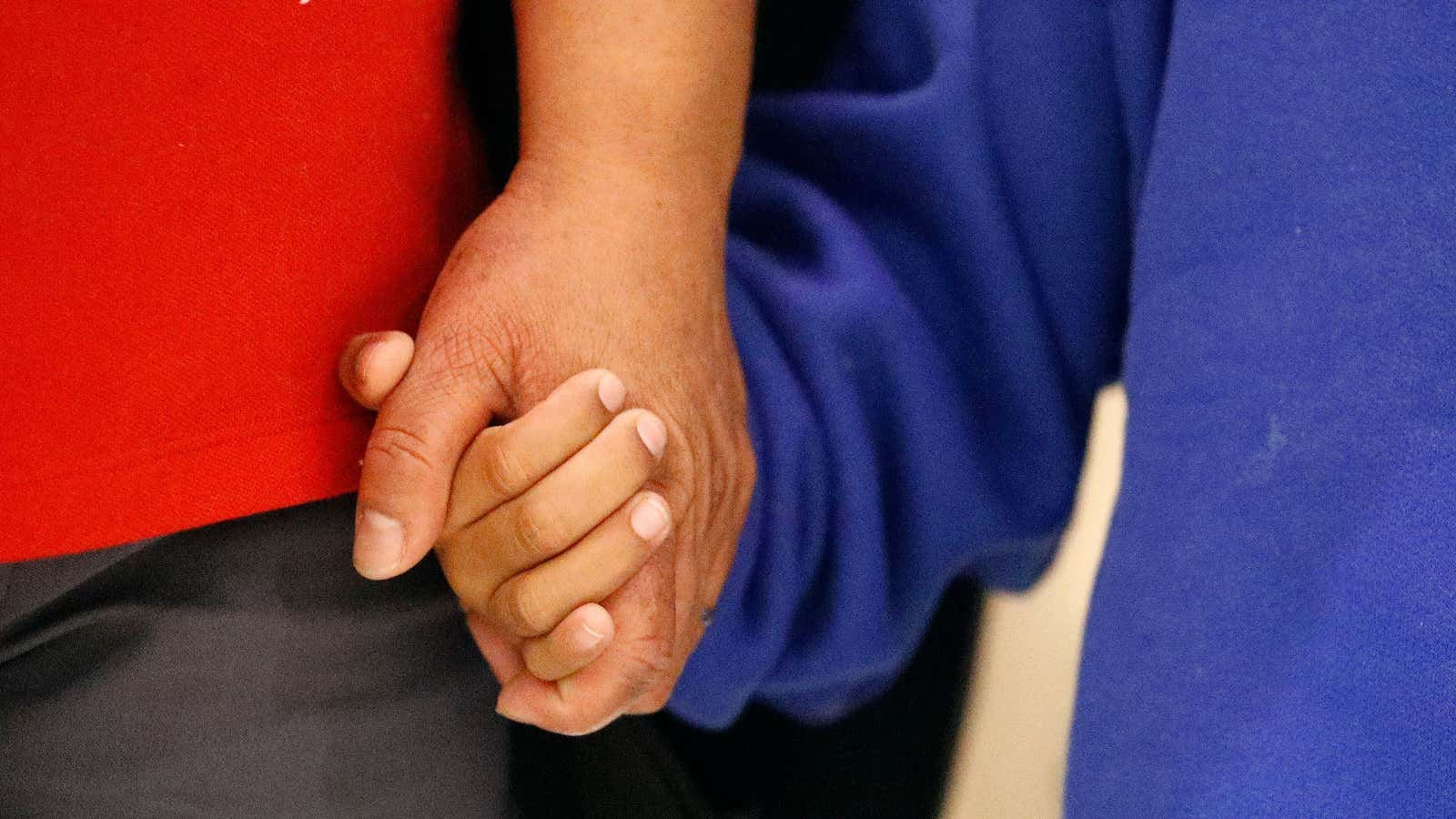On Tuesday (June 26), California district judge Dana Sabraw issued a nationwide preliminary injunction in response to a class-action suit brought by the American Civil Liberties Union to bar the practice of having border-patrol agents separate parents from their children when families are intercepted illegally crossing into the US. Seventeen states are also challenging the practice.
Since the Justice Department’s May 7 “zero tolerance” policy on illegal border crossings, the administration’s stance has been that all those entering illegally, even to seek asylum, have committed a crime and must face criminal prosecution. That saw an uptick in family and child separations pending immigration and legal proceedings, as the Trump administration sought to abide by earlier rules (paywall) limiting how long immigrant children entering the US can be kept in detention.
On June 20, Trump issued an executive order asking agencies to detain families together where possible, but the order didn’t resolve confusion nor clarify what should happen to families that have already been separated. More than 2,000 children were taken from their families since early May.
Tuesday’s 24-page preliminary injunction briefly described the plaintiffs’ case against against the US Immigration and Customs Enforcement agency, the Department of Homeland Security, and others. The first was a Congolese woman who presented herself at a port of entry and sought asylum on the grounds of religious persecution. She was separated from her six-year-old daughter as authorities sought to determine if she had a credible asylum case and if she was in fact the mother of the child she was with. During their five months of separation, at facilities over 1,000 miles apart, they were only able to speak six times. A Brazilian mother who entered illegally, and who was added to the complaint later, was similarly separated from her son.
The judge found that the manner of the separations and the agencies’ haphazard processes showed the claims of violation of due process stood a chance of being upheld. He ordered the separations to stop except in cases where the parent is a danger to the child, and ordered parents to be reunited with children under five in 14 days and with older children in 30 days. Phone calls between separated families must happen within 10 days. And parents who do not pose a danger to their child cannot be deported without their children, unless they explicitly consent to it.
The judge noted that in the present situation, children of entering immigrants are being treated with less regard than objects:
“The government readily keeps track of personal property of detainees in criminal and immigration proceedings. Money, important documents, and automobiles, to name a few, are routinely catalogued, stored, tracked and produced upon a detainees’ release, at all levels—state and federal, citizen and alien. Yet, the government has no system in place to keep track of, provide effective communication with, and promptly produce alien children. The unfortunate reality is that under the present system migrant children are not accounted for with the same efficiency and accuracy as property.” [emphasis in the original]
The California injunction came the same day the Supreme Court upheld Trump’s travel ban on visitors from certain Muslim-majority countries, as well as North Korea and some categories of travelers from Venezuela. That ended an 18-month saga involving Trump, civil and immigration rights activists, and the courts that began just days after his 2017 inauguration.
